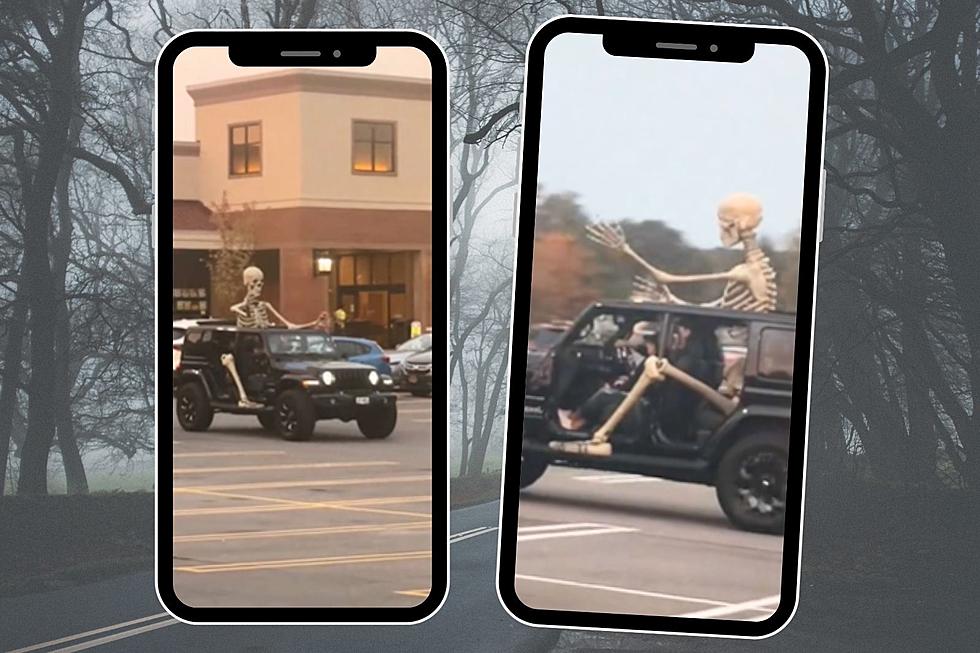
Darwyn Cooke Takes Down ‘The Outfit,’ Part 4
"It was Archie Goodwin, in the course of weaning me away from science fiction and shoving crime fiction down my throat, who first introduced me to Donald Westlake and Richard Stark. There have been a number of attempts to bring Parker to comics, but all fell apart, so I remain mystified that it took so long, and delighted that it finally happened in so compelling and well made a package.Darwyn's take on the material certainly isn't mine, but it's wonderful--I love the source material, and I love what this Canadian has done with what I regard as a quintessentially United States'ian crime franchise."
-Howard Chaykin

Tucker Stone: Well, if you're going to tighten something up, it's clear that the thing Westlake liked to tighten up in those books was the violence. He'd lay out everything that goes into a job; you'd see the crew walking into those rooms, catch them picking up those guns. The one that I've read a few times now that sticks out is "The Seventh," the way they spend the entire book building up to the one confrontation, when Parker is finally going to catch up with the impotent ex-boyfriend. All the stuff that goes into it -- the kid ruining the heist, the entire gang turning on each other and dying, and then he finally finds the guy. Chases him up flights of stairs, dodging those sheets of glass, and then Parker's standing there, and the guy's crying, and... one sentence. Parker executes him. There's no catchphrase, there's no jokes. It's just a task to be carried out.
Darwyn Cooke: Yeah, there were a couple of critics who referred to "The Hunter" as "bloodless." That the violence is antiseptic. I don't think those people have read the book. It's a reflection of the character, of Westlake, that they never dwell on this stuff. Even at the end of "The Outfit," I make a lot more out of the death than there is in the book. In the book, Parker pulls the trigger, the guy clutches his chest, and he slumps over. Those moments of violence are non-events in the book. They're simply there to punctuate or catalyze another set of hurdles. That really works in the books, but to a certain degree in the graphic novels, you want to feel these guys get shot. It's why I have him strangle Mal Resnick in nine panels, blocked off in a wide shot. It's because those scenes are completely emotionally dislocated in the books. They never have anything to do with emotion. There's no passion behind them, it's ruthlessness and efficiency. I didn't want to get sexy with it. [Laughs]
TS: The one thing that gets repeated throughout the books, besides structural stuff, is that he consistently mentions the dangers of enjoying that kind of violence. Most of the time when it comes up, it's about torture, but he's regularly presented as being someone who has no craving for violence. It's not why he's in this business.
DC: Again, this is the benefit of having a few exchanges with Donald. One of his concerns was that I understood that Parker doesn't operate out of anger. He never commits a violent act out of anger. He does it because it's the expedient thing to do. It's the practical thing, a survival mechanism. "The Hunter" is the place where he expels all of that violent energy, and from there forward, you're watching an emotionally dislocated guy making decisions based on his survival and what's best for him. There's no point in glorifying the violence, because it isn't the point. He's kind of like Howard Roark, another character that I dig. Parker's just f*cking oblivious to what you're feeling. He doesn't think "bad" or "good" of you. He doesn't think of you at all.
TS: I don't remember which book it is, but there's one with a girl who can't get over the fact that he constantly views her with no emotional reaction. She needles him, he doesn't react. He doesn't love her, hate her, anything. He's completely numb to her.
DC: I think that's a big part of why he's such a compelling character. Any reader can template anything they want onto him. Even a contemporary reader, even though there's a lot of misogyny being templated on him right now. And that's valid. They don't shy away from that in the books. But he remains a compelling character, even in different social times.
TS: It's something that comes up a lot. That's a consistent fascination, it reminds me of the way you described young men having fascist tendencies. Those kind of characters, masculine characters that don't permit any type of emotional reaction to interfere continue to engage audiences. Characters that aren't faking the disconnect, because they're fictional, so they don't have to fake it. People in charge of not having feelings. They don't get upset, or lustful, or angry -- emotional states don't dictate their behavior. The guys you see in every Michael Mann movie ever made.
DC: There you go, that flips my switch. The movie that changed the way I see all this shit was "Thief." I saw "Thief" in the theater when I was very young, and it just blew my f*cking head apart. That Tangerine Dream music, the cinematography, the whole approach to it. Some of the dialog feels a little purple now, like when you're re-reading "Dark Knight Returns." But man, that f*cking movie re-energized my entire interest in this stuff.

TS: The heist in that is your classic Westlake style heist. Ripped off from reality, copied as realistically as possible. Mann apparently hired real safecrackers to program that scene, the one where they burn through the vault with that...I can't remember what you call it. Some kind of carbon fiber, maybe?
DC: Yeah, the burning bar. It's an arc-welding stick, but it's gigantic. But man, that guy. He's used that like three times. I loved his show "Crime Story." I loved it.
TS: Even in things like "Last of the Mohicans" or "Jericho Mile," when Mann's out of his comfort zone, he always returns to those same Stark-like characters. Tasks are treated as craft, everything is technical. His guys always sacrifice emotional life in the service of whatever it is they do.
DC: Well, these characters make decisions in a fair exchange within themselves. It's saying "I'm not a good enough person to be true to those things." So they'll be true to the one thing, they find that one thing, whether it's sheriff, ordained minister, or safecracker. I know that, for myself, a huge part of what fascinates and attracts me to these books is the notion of a guy who has figured out how to operate parallel to society. Without having to take a lot of the shit that comes upon him. To me, that was a huge part of the attraction. I love the notion of Parker, this guy who is smart enough to have this life set up in Miami and he just ventures out three or four times a year to do his thing. And then he comes back quietly, to live his life. Outside of all the bullshit that everybody else has to deal with. I thought that was an incredible concept when I was younger and just reading the books. The kind of guy who doesn't answer to anybody but himself--I just found that admirable.
Again, he's a fictional character.
TS: That's gotta be part of the reason it remains attractive though, that's why it survives. You look at the world today, and it's a place where being a jack of all trades is the goal, you're supposed to have your toe in everything, to have a relationship with everything available. Characters like Parker, living outside the mainstream, wholly committed to one thing, to being a perfect heist man -- it's against what's expected, it's become an ideal. In a way, I feel like Grofield is more representative of who we are now, someone who has and purses all kinds of different interests.
DC: I don't know that what you're saying is necessarily true. I think Grofield represents what any normal human being would get involved in this for. They want to live the life they want to live, and this is how they finance it. To them, that's just their vocation. Their passion is racing cars, performing in theater. With Parker--there's nothing outside of the job. That's what makes him the backbone of the story, what holds it together. He does the job and he goes and sits on the beach until he gets too bored to sit on the beach. And then he goes and does another job. He's got no real life outside of it. The other guys represent all of us, on one level or another.
TS: See, I think that what makes him more compelling to us. That he's so inhumanly focused, whereas we're bent to human distraction. That lack of life makes him "better" than the rest of them. He's perfected the things that the rest of them can't. Grofield is always gettting hurt, and Handy wants to open a diner. To all of that, Parker just shrugs. "We'll see."
DC: Oh, he sees all those things as a sign of weakness, but not because he's superior. Again, the reason it's seminal is explained in "The Hunter". This is a guy who has been in love. He got up and got married. He had a honeymoon. He had friends. And what happens to him in that book wipes all of that out. So when he's looking at Handy, when he's looking at Alan [Grofield], it's all through the prism of what you get if you don't control that side of yourself. So yeah, any sort of human attachment for him is completely factored out.
TS: He already knows where those things are going to end up.

DC: Yeah, I think he views every relationship as a foregone conclusion. Another reason he's so fascinating is because it's impossible to see anything that he believes in. Other than his ability to take advantage of other people's greed, his skill, his craft. You sit and think "there's got to be more to this guy." But Westlake was clever enough to leave that for you to think about.
TS: It's similar to why Robert De Niro fails in "Heat." He's great at his job, alllows for nothing else, and then he falls apart when he tries to chase his revenge, get the girl, head off to the beach.
DC: Yeah, I gotta say...I feel like you youngsters talk about that movie as if you've discovered something, and I think you give it way too much credit. I remember sitting there thinking it was just a bloated statement, that it was just too long. And it's miserable too, because there's just no way that Al Pacino would've f*cking got him at the end! That movie ended the wrong way. Obviously, De Niro would've killed him dead in that little runway chase thing. The one that took an hour. God. Yeah, I'm not down with that one as much as other people.
TS: I'll love that shoot-out in the streets forever.
DC: Oh yeah! Oh, the movie has some great stuff. But it's too long.
TS: I'll give you that it's too long. But I have a hard time sh*t-talking movies I saw right after I got my driver's license.
DC: Oh, yeah, I know. "Death Wish." I could sh*t-talk that movie all day long.. but I really can't. I loved it once, and it's like an ex-wife, or girlfriend. What's the point in sh*t-talking it? You loved it once.
More From ComicsAlliance









